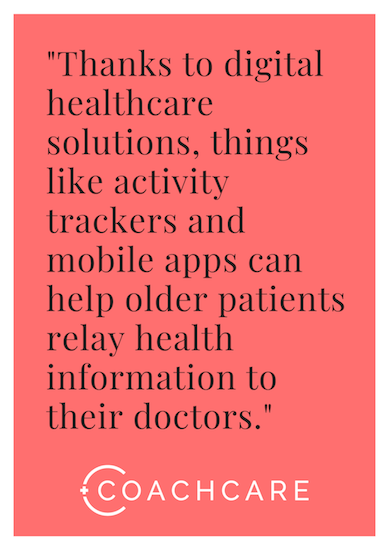Healthy Aging 101: How to Adopt a Healthier Lifestyle as You Get Older
Nowadays, we are living longer than ever before, and by starting a healthy lifestyle earlier in life, your chances of staying healthy as you get older are greatly increased. Eating well, staying physically active, socializing and improving your health can help you live a happier, healthier life.

In this case, the fast pace of technological breakthroughs and weight loss insurance is helping older adults stay abreast of their health. Thanks to digital healthcare solutions, things like activity trackers and mobile apps can help older patients relay health information to their doctors. As noted in ‘How Digital Healthcare Helps Doctors and Patients’, that same technology can help doctors make faster and better-informed diagnoses regarding weight, sugar levels and more- and motivate patients to stay healthy.
September Focuses on the Health of Older Adults
With September being Healthy Aging Month, one of the most important aspects for older adults is physical activity and a healthy diet. Regular physical activity can help you sleep better while reducing the risks of heart disease, dementia, and falls. Regular exercise also helps maintain fitness, balance, and strength. Similarly, a healthy diet can boost your immunity and fight illness-causing toxins, type-2 diabetes, bone loss, and even cancer.
Help Guide explains that every year over the age of 40, your metabolism slows down and you tend to become less physically active. It is, therefore, even more important to adopt a healthy diet and exercise habit to avoid weight gain and help ward off disease. This not only benefits your physical health, but your mental health as well. When you’re at your healthiest, you also feel good. Additionally, exercising outdoors with others helps prevent isolation and the negative effects it can have on older adults.
Wearable Technology and Your Health
To help you with exercising and staying healthy as you get older, wearable technology can monitor your health and fitness goals and even sleep patterns. Many consumer solutions also have medical-grade EKGs that will accurately monitor your heart rate and how well you sleep. New and upcoming technologies will also keep tabs on your glucose levels painlessly, through a biosensor patch that can monitor sugar levels through the skin. Paired with their respective phone apps, the data gathered can be shown to your doctor who will be able to discern any erratic patterns or identify areas of concern, to help them make an accurate diagnosis of your health. The more information you can provide your doctor, the more you’ll be able to help them help you stay healthy. You should also look into your weight loss insurance options to see what features you have access to.
It’s important to keep this in mind, because the rising number of older adults in the U.S. and the increasing shortage of trained medical professionals has the potential to strain an already stretched medical industry. A study conducted by the Population Reference Bureau notes that the number of Americans 65 and older is projected to almost double from 52 million in 2018 to 98 million by 2060. Moreover, the 65-and-older age group’s share of the total population of the United States will rise from 16% to 23%. In Maryville University’s analysis of how healthcare is expanding in the U.S. they found that the number of senior citizens had increased by 15 million in just 16 years. This rapid growth points to the fact that life expectancy has increased in the last 70 years since 1950, due to advancements in medicine, healthy habits, and technology. It’s now easier than ever to adopt a healthier lifestyle in your golden years, and it starts with you.
About CoachCare:
CoachCare powers clinics with a virtual health and remote patient monitoring platform that reflects your unique workflow and protocol. Remote patient monitoring insurance features drive significant additional revenue while lowering the overall cost of care. Contact us to learn more.